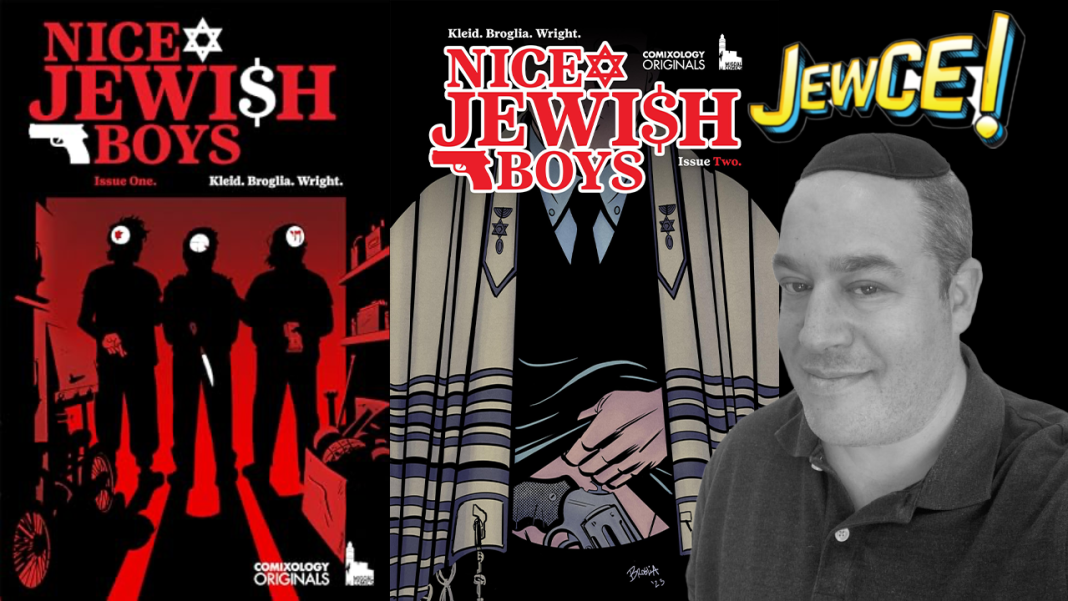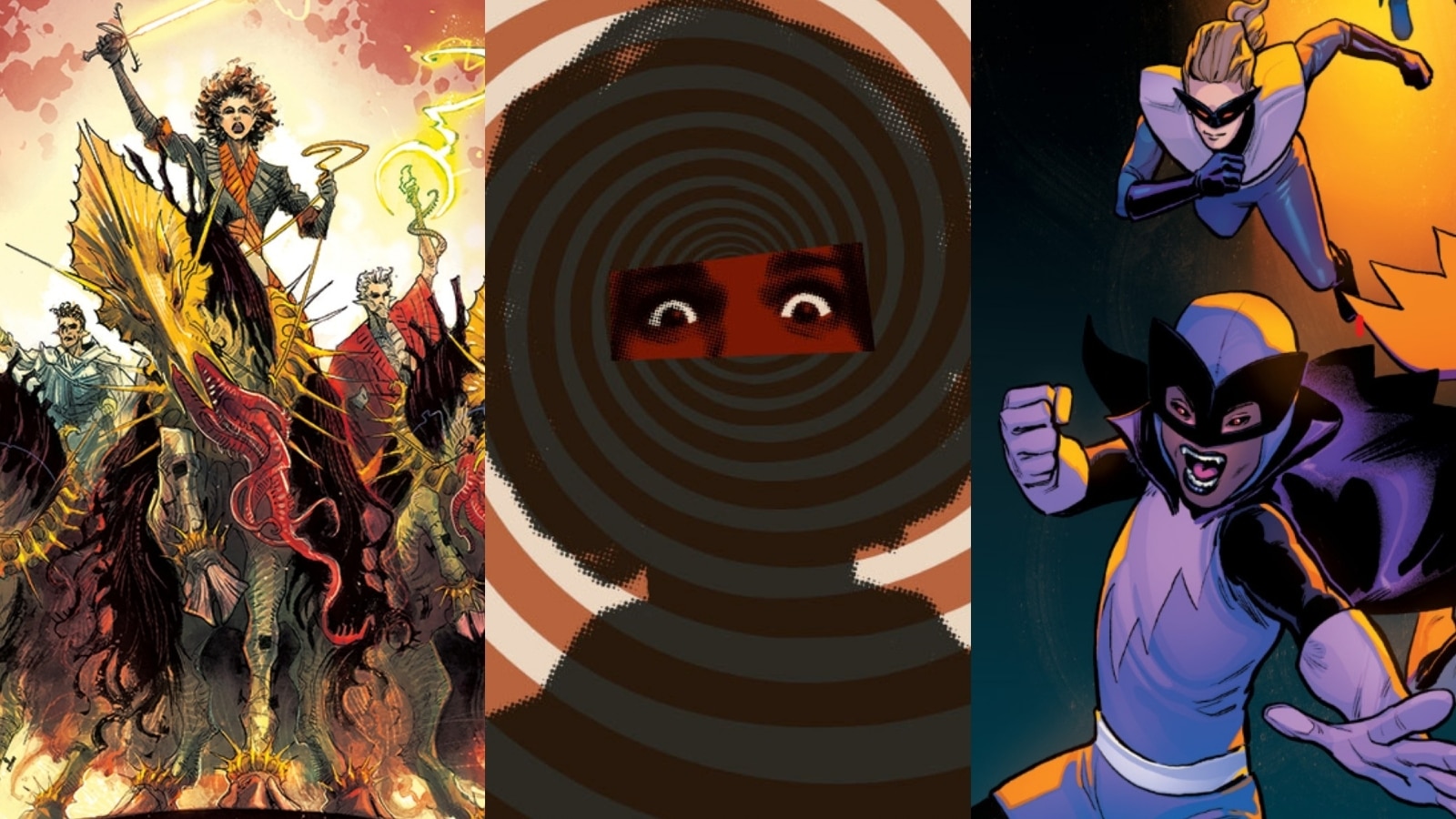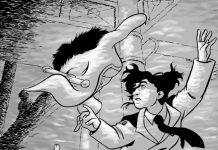By Noam Steinerman
This past weekend, Neil Kleid was awarded best writer at the 2023 JewCie award ceremony. Kleid is a comic book creator, graphic novelist, and writer whose new series about brotherhood, betrayal, and bar mitzvahs, Nice Jewish Boys, recently came out on Comixology Original.
Kleid is an Übermensch to talk comics and writing with. For The Beat, I had the opportunity to speak with him at this year’s JewCE about his latest comic book, Nice Jewish Boys, with artist John Broglia and colorist Elle Wright, Jewish representation in comics, and more!
This interview has been edited for clarity.
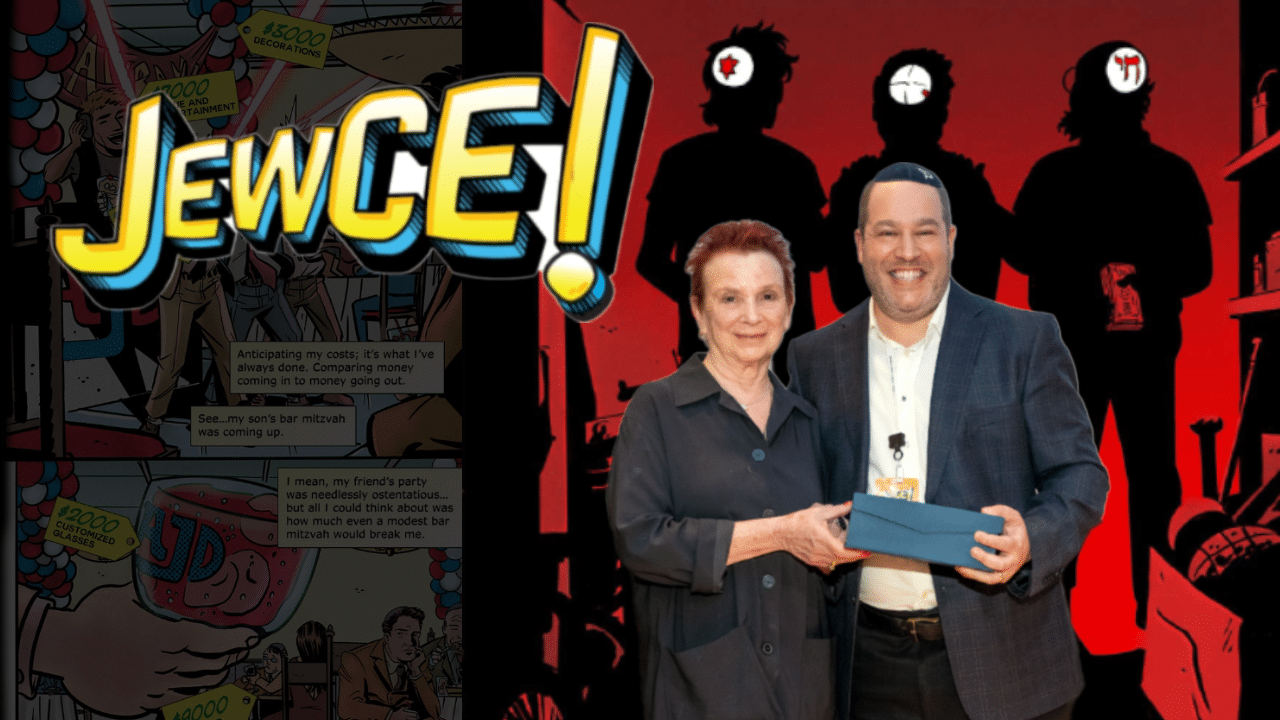
Noam Steinerman: We are here at the Artist Alley at JewCE 2023 with none other than Neil Keid! How are you doing?
Neil Kleid: It has been a really, really good weekend so far—lots of great books and graphic novels celebrating Jews and Jewish representation. Last night, we had a nice award ceremony celebrating people like Trina Robbins, Jules Feiffer, and many great books. So far, I’ve felt optimistic, which is sometimes tough in comics.
Steinerman: Can you tell us more about your latest book?
Kleid: Nice Jewish Boys is my new book. It’s a suburban Jewish crime story set in Teaneck, New Jersey, where I live. It’s born from me being a Jewish adult dealing with all the financial and religious restrictions and sacrifices that I had to make over the years—not sacrifices, more like dealing with my own life. As a dad who has to pay for Jewish private school. As somebody who has to keep kosher. There’s a lot in your life as a Jew that is tough. So, my question was: what lengths would you go to specifically from a financial point of view to improve your life, and what line are you willing to cross? That was the first thought in my head.
The other thought was that I had read a Cleveland Jewish News story about a butcher in Cleveland who sold his business to a couple of Jewish brothers. The butcher stayed in the business to help them out, eventually discovering that they were using the business as a drug front and laundering money, and it became the front for a criminal operation. It’s about how he trusted these guys and found out they betrayed him, took a business that had been around for years, and ruined his name. So, my question was: as a Jew, [how do you weigh] your loyalty to your fellow Jew versus your loyalty to the law?
This story is about Jake, a father trying to pay for a bar mitzvah and having financial trouble. His buddy, who owns an appetizing store, brings him in and says, “Hey, come work for me for a while, and you will make some money.” Jake gets drawn into what is a criminal front, laundering money, drug trafficking, and all that, and finds out his best friend of 30 years has betrayed him. The story is about him dealing with whether his loyalty is to his friend, family, or God? And where do I draw the line to where I am willing to skirt that line to provide for my family?
It’s about brotherhood. It’s about betrayal. It’s about bar mitzvahs. It’s rooted in many things I have been grappling with as an adult in this world who is not “rolling in it.” I have to pay for things for my family. I love God, but God isn’t paying my bills.
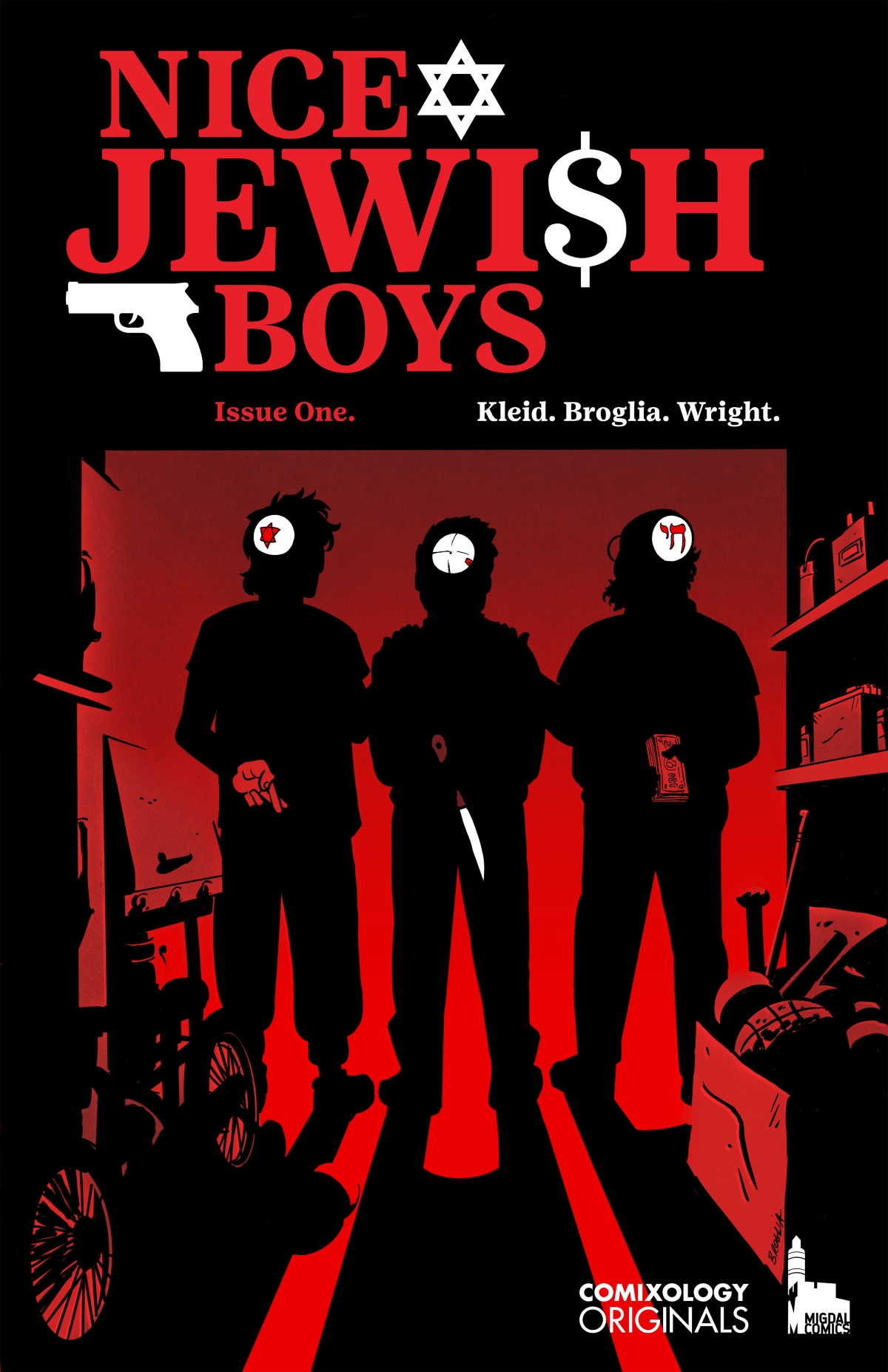
Steinerman: NJB reminded me closer to Goodfellas and Sopranos in the sense that just as bad as the crime is, it balances out with love and some really authentic characters.
Kleid: Every time you see a Jew in a movie or a television show, it’s an accountant, lawyer, doctor—those are the big three. You don’t see a Jewish Jack Reacher or a Jewish action star. It’s very few and far between. It’s interesting when somebody can take a character like that, a leading man-type character, or even a villain. You don’t always want to see Jews as villains, but sometimes it’s okay. We are all people, and all people are us. Whether seen as accountants versus secret agents versus kingpins, I think it’s okay to show that Jews are in all worlds. That’s something I’m a big believer in—representation across the board. When you think about superheroes, you don’t see many superheroes that display their Jewish faith regularly. That could be because it’s not as important to the writers and creators who tell those stories. You have characters like Ben Grimm, Kitty Pryde, Ragman, and Batwoman, who are very Jewish, but you only see them display their Judaism maybe once or twice a year in a Hanukkah story. It’s important for these characters to be able to show some connection to their faith naturally within the narrative of the stories they are trying to tell because you don’t typically see it.
The stories I try to tell show Jews from all walks of life, whoever they are, wherever they are—not necessarily lawyers, accountants, and doctors—that can tell a narrative that stands on their own. For me, that’s super important. Whether it’s a comic, TV, or film. I gravitate towards those types of stories and appreciate those kinds of stories. I think this JewCE convention is indicative of that. You are seeing a more vocal movement by Jewish creators who want to tell those stories, to put their Jewish background, heritage, and history into the stories that everyone, Jewish or not, is consuming.
Steinerman: Drawing inspiration from the real world, NJB is set in New Jersey. Do you find that the location informs the story? How long have you been in Jersey?
Kleid: I lived in Jersey since 2008 or 2009, since my oldest was very young. I think the place informs the story. Gotham City is part of Batman. When Batman is connected to his city, that informs the character much more so than having him in Kansas. So sometimes, the location of the story is the unseen character. I did a book called Panic, a disaster story set on a path train that crashes under the Hudson, where New York City is the unseen character. This story wouldn’t be the same in Detroit—the type of people in the story, the melting pot we have here.
Would Nice Jewish Boys work as well if not set in Teaneck? Maybe. That story is indicative of Jews or any minority located anywhere in America or across the globe. The story that happens to Jake is about somebody struggling with finances and providing for his family and trying to look at loyalty versus the law. All of that is not unique to Jews in Teaneck, but is it unique to Jews themselves? Part of it is, but it could happen in Detroit, LA, Ohio, Paris, or anywhere. People struggle with their relationship with God, and people struggle with their finances and family.
I wanted to set it in a place that is personal to me. That is why it’s tied so well. Jake’s story in NJB could have happened in Cleveland, Ohio, and probably did after what happened with the butcher in 2019.
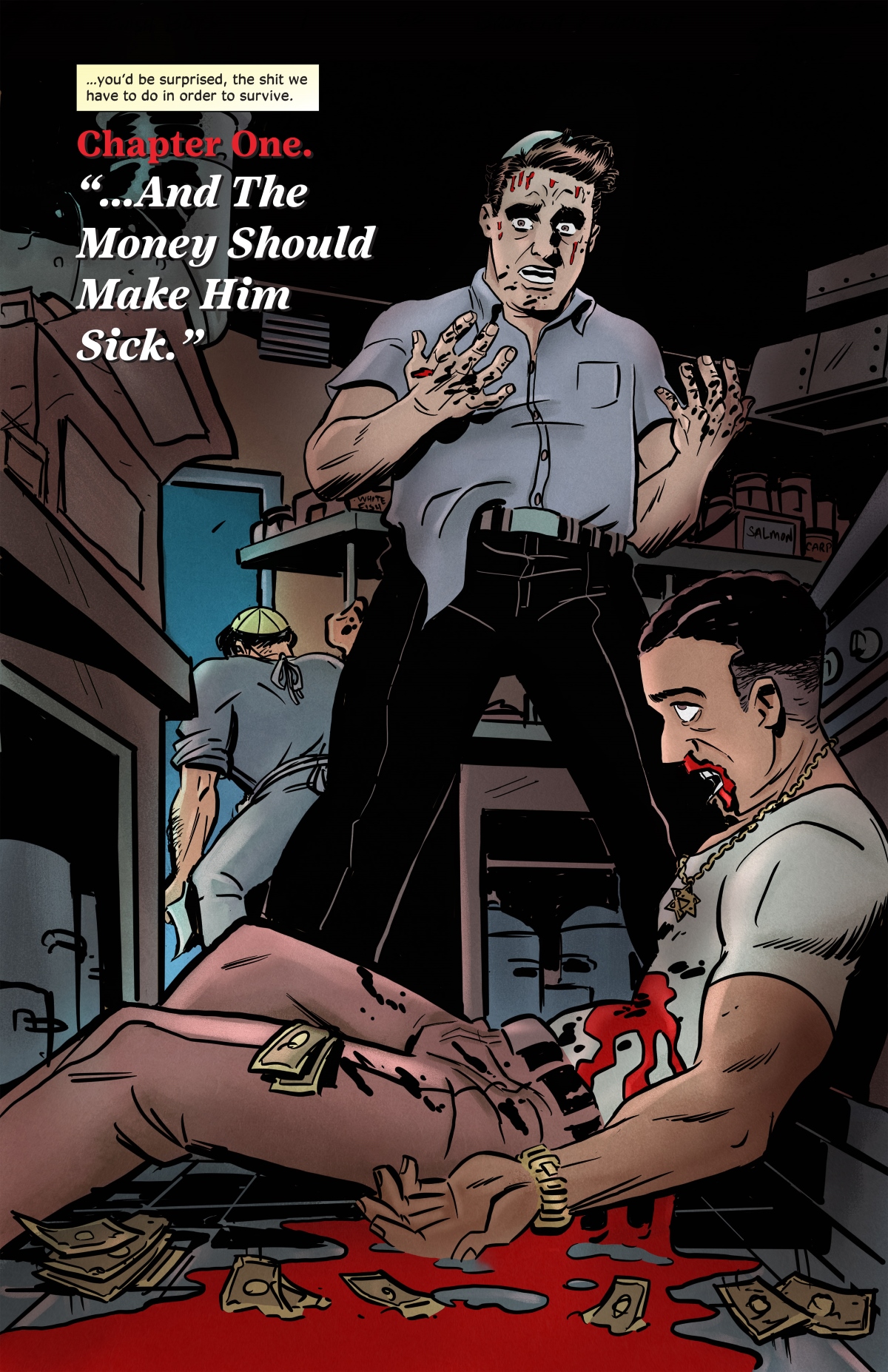
Steinerman: Say you go back in time; what advice do you give your younger self?
Kleid: I did a bunch of random Avengers and Batman pages, and I went to DC Comics to have comic editor Jordan B. Gorfinkel look at my pages, who said, “Thanks for showing me. Don’t draw anymore. Your art needs much work, but your storytelling is great; you should write.” So, I started drawing, but I shifted to writing. So I might tell my younger self, “Hey, focus on the writing a little more.”
Also, I’d tell my younger self, “It’s a marathon, not a sprint. Don’t judge yourself by the successes of others. You are your own person. You are your own writer. Read everything. Write more than what you know. Try to get out of your comfort zone.”
Mostly, it’s about finding the balance of what I can work on at any given time, not rushing the process, and making sure whatever I create is important to me. I have something to say, and it’s personal—because those are the best stories. I would rather focus on one or two intimate personal stories than work on six or seven that I don’t fully believe in.
As a writer, I learned over the last six years it takes time, patience, persistence, and professionalism. If you are a writer and want to figure out how to do this, I can tell you there is no quick, rich way to write comics. You have to do the work. You have to network. You have to finish something—finish a book. Get it out there any way you can, and when you’re done, do another one and then another one. Eventually, people will notice. Talent will rise. Don’t sweat what other people are doing. Just focus on your road, and you will get there.
Follow @neilkleid for more!


